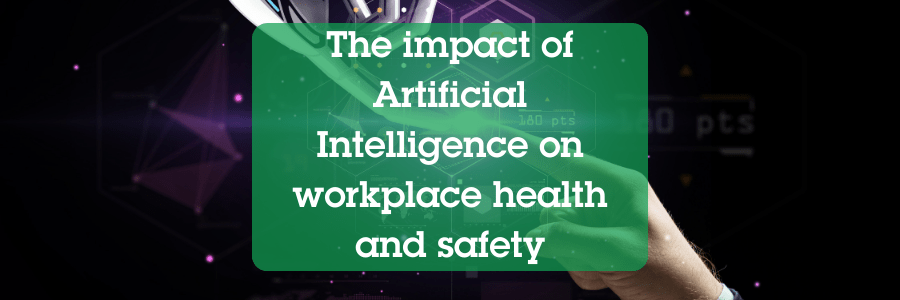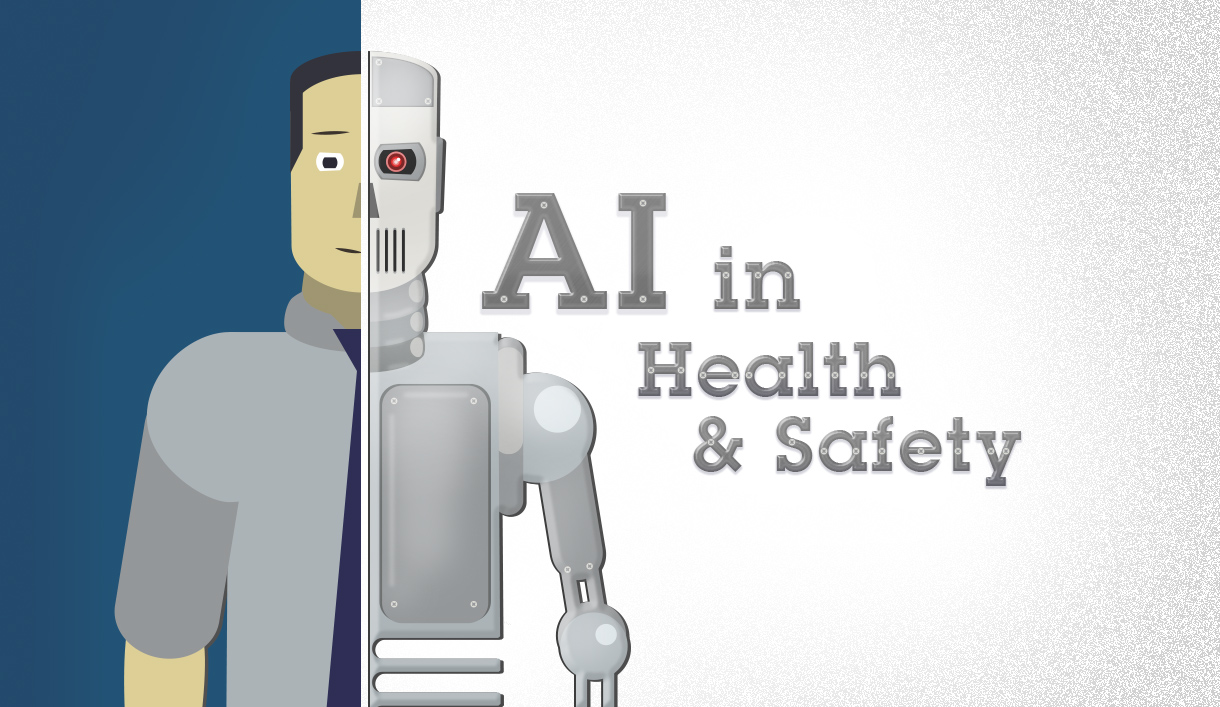The impact of Artificial Intelligence on health and safety
Artificial Intelligence (AI) has emerged as a transformative force, revolutionising the way we live and work. It has a great impact In the world of health and safety. AI technologies are leading the way in unprecedented advancements, offering innovative solutions to enhance medical care and improve workplace health and safety. This blog considers the profound impact of AI on health and safety, examining the benefits, challenges, and ethical considerations associated with the integration of intelligent technologies.
Improved medical diagnosis and treatment
One of the most significant contributions of AI to health is its role in medical diagnosis and treatment. Machine learning algorithms analyse vast amounts of information, enabling healthcare professionals to detect patterns and make accurate predictions. AI applications, such as computer-aided diagnosis, assist in the early detection of diseases.
Enhanced monitoring and predictive analytics
AI-based monitoring systems have become instrumental in improving patient care and safety within healthcare facilities. Smart sensors and wearable devices equipped with AI algorithms can continuously monitor vital signs, detect anomalies, and provide early warnings of potential health issues. Predictive analytics help healthcare providers anticipate patient needs, enabling proactive intervention and personalised treatment plans. This proactive approach not only saves lives but also reduces the burden on healthcare systems.
Workplace safety and risk mitigation
In industrial settings, AI plays a pivotal role in enhancing workplace safety. Examples include:
- Intelligent sensors and monitoring systems can detect potential hazards, such as equipment malfunctions. This allows for proactive maintenance, reducing the risk of unexpected equipment breakdowns that could pose health and safety risks.
- Predictive maintenance powered by AI algorithms allows organizations to address issues before they escalate, minimising the likelihood of accidents and injuries.
- AI-powered collaborative robots (Cobots) work alongside human workers, taking over repetitive or hazardous tasks, such as “pick and place” and spot-welding tasks. This reduces the risk of injuries associated with tasks that may be repetitive, physically demanding or involve exposure to harmful substances.
- In industries involving transportation, AI-powered driver assistance systems can enhance safety by monitoring driver behaviour, detecting fatigue, and providing warnings or interventions to prevent accidents.
- AI-enhanced virtual reality simulations allow workers to practice and train for hazardous scenarios in a safe virtual environment.
- Wearables that monitor fatigue levels (such as the SmartCap) use EEG (electroencephalogram) technology to assess the wearer’s level of alertness. This can be particularly important in industries where fatigue can lead to serious accidents, such as transportation.
- Wearable exoskeletons (wearable devices that can enhance, augment, or assist the user’s posture, motion, or physical activity) are designed to assist workers in lifting heavy objects and reduce the risk of musculoskeletal injuries.
AI in emergency response and disaster management
AI technologies are crucial in improving emergency response and disaster management. Intelligent systems can analyse vast amounts of data, including social media, to identify affected areas and assess the extent of damage during natural disasters. AI-powered drones and robots are deployed for search and rescue operations in hazardous conditions, helping to locate and aid victims efficiently. This capability significantly enhances the effectiveness of emergency response teams and reduces the time needed to mitigate the impact of disasters.
Challenges and ethical considerations
While the benefits of AI in health and safety are undeniable, there are also challenges and ethical considerations that must be addressed. Privacy concerns and data security are just two issues that need careful consideration. Ensuring transparency in AI systems, establishing robust regulatory frameworks, and promoting ethical AI practices are essential to mitigate these challenges.
What is the future of health and safety and AI
Artificial Intelligence has undoubtedly transformed the landscape of health and safety, offering innovative solutions that have the potential to save lives and improve overall well-being. From medical diagnostics to workplace safety and emergency response, the integration of AI technologies has brought in a new era of possibilities. As we continue to harness the power of AI, it is crucial to navigate the challenges and ethical considerations to ensure a responsible and sustainable integration of intelligent technologies for the benefit of humanity.
However, with this transformative, innovative force comes a warning. In the words of Elon Musk (CEO of Tesla):
AI will have the potential to become the most disruptive force in history. For the first time, we will have something smarter than the smartest human,” Musk said at an event at Lancaster House, an official U.K. government residence.
He continued
It’s hard to say exactly what that moment is, but there will come a point where no job is needed.
Musk has on multiple occasions warned of the threats that AI poses to humanity, having once said it could be more dangerous than nuclear weapons.





